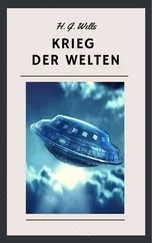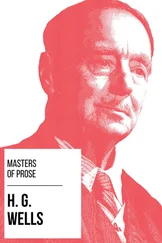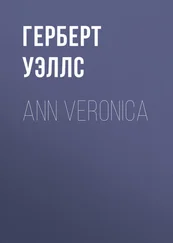moment there was silence.
He made some obvious comments on the wide view warming toward its
autumnal blaze that spread itself in hill and valley, wood and
village, below.
"It's as broad as life," said Mr. Ramage, regarding it and
putting a well-booted foot up on the bottom rail.
Part 7
"And what are you doing here, young lady," he said, looking up at
her face, "wandering alone so far from home?"
"I like long walks," said Ann Veronica, looking down on him.
"Solitary walks?"
"That's the point of them. I think over all sorts of things."
"Problems?"
"Sometimes quite difficult problems."
"You're lucky to live in an age when you can do so. Your mother,
for instance, couldn't. She had to do her thinking at
home--under inspection."
She looked down on him thoughtfully, and he let his admiration of
her free young poise show in his face.
"I suppose things have changed?" she said.
"Never was such an age of transition."
She wondered what to. Mr. Ramage did not know. "Sufficient unto
me is the change thereof," he said, with all the effect of an
epigram.
"I must confess," he said, "the New Woman and the New Girl
intrigue me profoundly. I am one of those people who are
interested in women, more interested than I am in anything else.
I don't conceal it. And the change, the change of attitude! The
way all the old clingingness has been thrown aside is amazing.
And all the old--the old trick of shrinking up like a snail at a
touch. If you had lived twenty years ago you would have been
called a Young Person, and it would have been your chief duty in
life not to know, never to have heard of, and never to
understand."
"There's quite enough still," said Ann Veronica, smiling, "that
one doesn't understand."
"Quite. But your role would have been to go about saying, 'I beg
your pardon' in a reproving tone to things you understood quite
well in your heart and saw no harm in. That terrible Young
Person! she's vanished. Lost, stolen, or strayed, the Young
Person! . . . I hope we may never find her again."
He rejoiced over this emancipation. "While that lamb was about
every man of any spirit was regarded as a dangerous wolf. We
wore invisible chains and invisible blinkers. Now, you and I can
gossip at a gate, and {}Honi soit qui mal y pense. The change
has
given man one good thing he never had before," he said. "Girl
friends. And I am coming to believe the best as well as the most
beautiful friends a man can have are girl friends."
He paused, and went on, after a keen look at her:
"I had rather gossip to a really intelligent girl than to any man
alive."
"I suppose we ARE more free than we were?" said Ann Veronica,
keeping the question general.
"Oh, there's no doubt of it! Since the girls of the eighties
broke bounds and sailed away on bicycles--my young days go back
to the very beginnings of that--it's been one triumphant
relaxation."
"Relaxation, perhaps. But are we any more free?"
"Well?"
"I mean we've long strings to tether us, but we are bound all the
same. A woman isn't much freer--in reality."
Mr. Ramage demurred.
"One runs about," said Ann Veronica.
"Yes."
"But it's on condition one doesn't do anything."
"Do what?"
"Oh!--anything."
He looked interrogation with a faint smile.
"It seems to me it comes to earning one's living in the long
run," said Ann Veronica, coloring faintly. "Until a girl can go
away as a son does and earn her independent income, she's still
on a string. It may be a long string, long enough if you like to
tangle up all sorts of people; but there it is! If the paymaster
pulls, home she must go. That's what I mean."
Mr. Ramage admitted the force of that. He was a little impressed
by Ann Veronica's metaphor of the string, which, indeed, she owed
to Hetty Widgett. "YOU wouldn't like to be independent?" he
asked, abruptly. "I mean REALLY independent. On your own. It
isn't such fun as it seems."
"Every one wants to be independent," said Ann Veronica. "Every
one. Man or woman."
"And you?"
"Rather!"
"I wonder why?"
"There's no why. It's just to feel--one owns one's self."
"Nobody does that," said Ramage, and kept silence for a moment.
"But a boy--a boy goes out into the world and presently stands on
his own feet. He buys his own clothes, chooses his own company,
makes his own way of living."
"You'd like to do that?"
"Exactly."
"Would you like to be a boy?"
"I wonder! It's out of the question, any way."
Ramage reflected. "Why don't you?"
"Well, it might mean rather a row."
"I know--" said Ramage, with sympathy.
"And besides," said Ann Veronica, sweeping that aspect aside,
"what could I do? A boy sails out into a trade or profession.
But--it's one of the things I've just been thinking over.
Suppose--suppose a girl did want to start in life, start in life
for herself--" She looked him frankly in the eyes. "What ought
she to do?"
"Suppose you--"
"Yes, suppose I--"
He felt that his advice was being asked. He became a little more
personal and intimate. "I wonder what you could do?" he said.
"I should think YOU could do all sorts of things. . . .
"What ought you to do?" He began to produce his knowledge of the
world for her benefit, jerkily and allusively, and with a strong,
rank flavor of "savoir faire." He took an optimist view of her
chances. Ann Veronica listened thoughtfully, with her eyes on
the turf, and now and then she asked a question or looked up to
discuss a point. In the meanwhile, as he talked, he scrutinized
her face, ran his eyes over her careless, gracious poise,
wondered hard about her. He described her privately to himself
as a splendid girl. It was clear she wanted to get away from
home, that she was impatient to get away from home. Why? While
the front of his mind was busy warning her not to fall into the
hopeless miseries of underpaid teaching, and explaining his idea
that for women of initiative, quite as much as for men, the world
of business had by far the best chances, the back chambers of his
brain were busy with the problem of that "Why?"
His first idea as a man of the world was to explain her unrest by
a lover, some secret or forbidden or impossible lover. But he
dismissed that because then she would ask her lover and not him
all these things. Restlessness, then, was the trouble, simple
restlessness: home bored her. He could quite understand the
daughter of Mr. Stanley being bored and feeling limited. But was
that enough? Dim, formless suspicions of something more vital
wandered about his mind. Was the young lady impatient for
experience? Was she adventurous? As a man of the world he did
not think it becoming to accept maidenly calm as anything more
than a mask. Warm life was behind that always, even if it slept.
If it was not an actual personal lover, it still might be the
lover not yet incarnate, not yet perhaps suspected. . . .
He had diverged only a little from the truth when he said that
his chief interest in life was women. It wasn't so much women as
Woman that engaged his mind. His was the Latin turn of thinking;
he had fallen in love at thirteen, and he was still capable--he
prided himself--of falling in love. His invalid wife and her
money had been only the thin thread that held his life together;
Читать дальше












